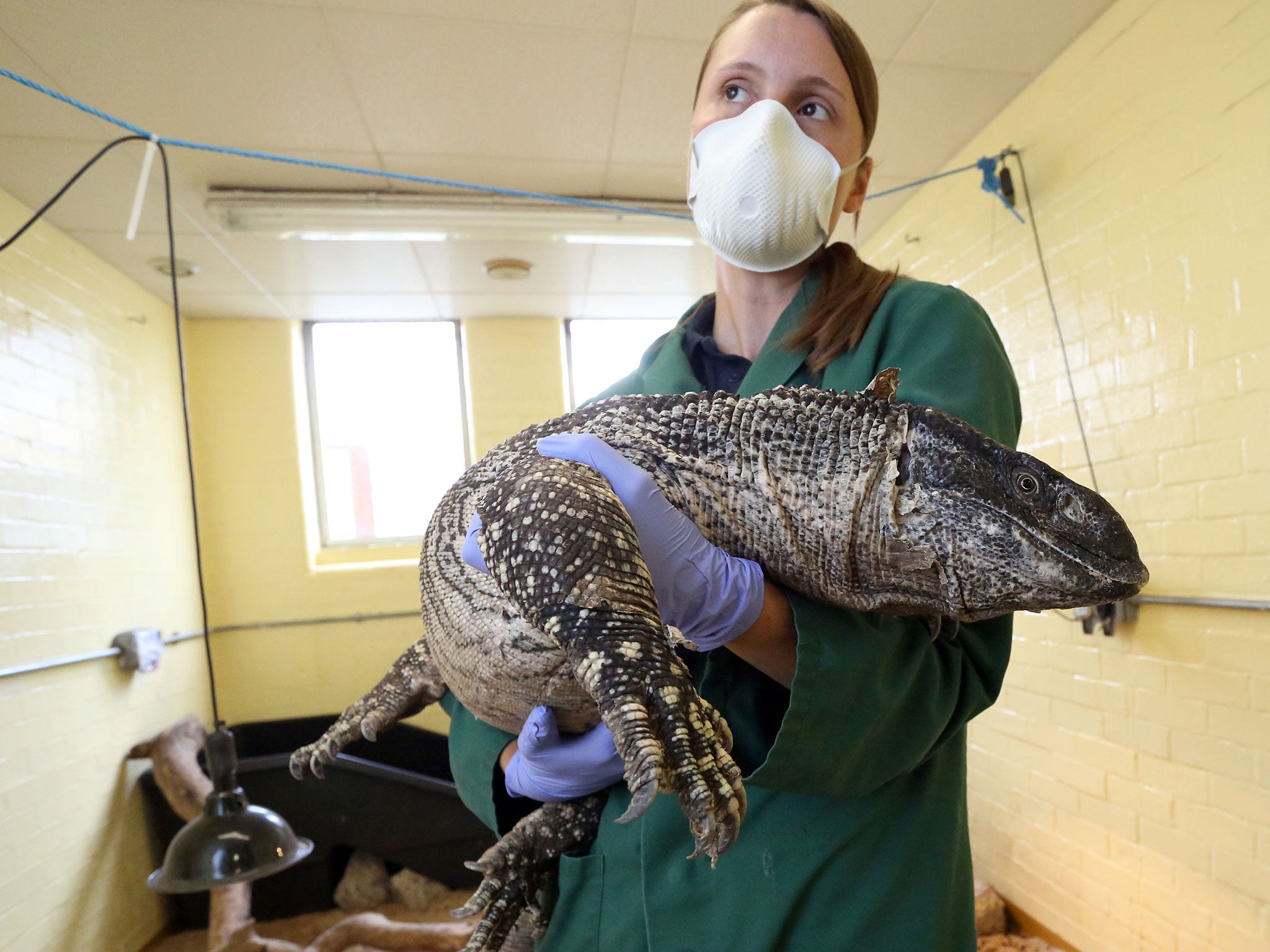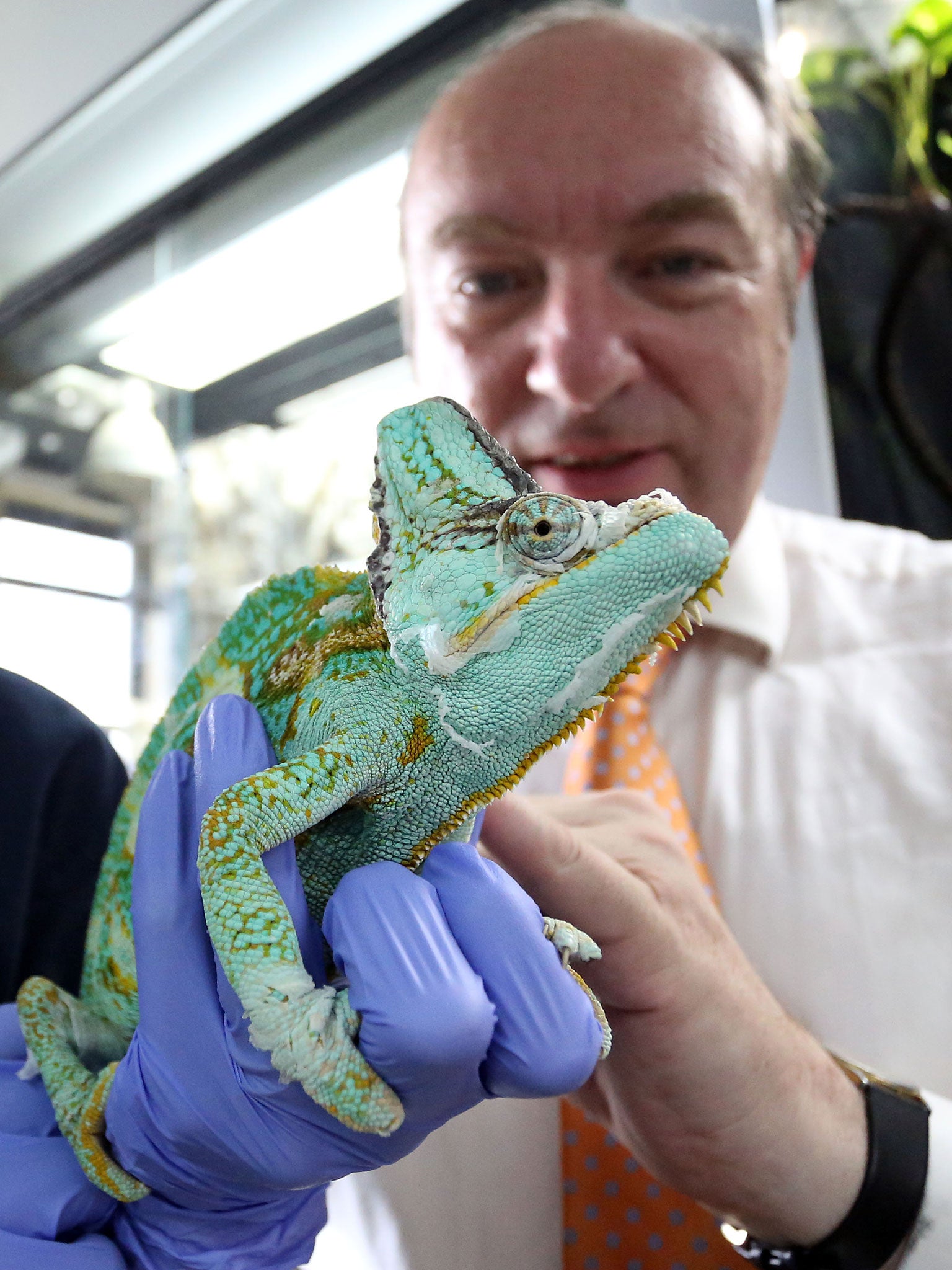Stuck at Heathrow: the live animal cargo smuggled into Britain
Among the lizards and lemurs, Nigel Morris hears a plea to crack down on animal trafficking at the airport’s ‘Noah’s Ark’

Criminals caught smuggling rare and exotic animals should face swingeing jail sentences in an attempt to stamp out an illicit trade that threatens the survival of endangered species, a minister said.
Norman Baker was speaking after viewing a staggering array of live creatures intercepted at British airports, including giant lizards, crocodiles, tortoises, snakes, a chameleon and a parrot. Among the most fearsome-looking was a 1m-long white-throated monitor lizard from Tanzania, one of a batch of 10 found crammed into small bags.
The animal reception centre at Heathrow Airport – described by one Border Force official as “a Noah’s ark” – has in recent months housed monkeys, lemurs, king vultures and even a cheetah.
Twelve San Salvador rock iguanas – a breed so rare that only a few hundred are thought to exist – have just been sent back to their native Bahamas.
They were smuggled into the country, hidden in socks, by two Romanian women who were en route to Germany. The creatures are so rare they could each be worth £20,000 to collectors. The women were each jailed for a year – and Mr Baker called for even tougher treatment for the masterminds behind the multi-billion pound trade.
The maximum prison sentence for animal smuggling is seven years. The longest term handed down has been the six and a half years given to an animal dealer caught with 23 endangered birds of prey packed in suitcases.
Mr Baker, the crime prevention minister, told The Independent he wanted to see more animal smugglers serving long spells behind bars.
“These species don’t just belong to this generation. They have to exist forever – before us and after us,” he said. “Anyone who endangers that should be subject to severe penalties, including imprisonment.”
Grant Miller, the senior officer on the eight-strong Border Force endangered species team, said: “We need to ensure the full force of the law is brought against them.”
In the first three months of 2014 alone, 523 live animals and birds have been confiscated under the Convention on International Trade of Endangered Species.

That is in addition to thousands of parts from threatened animals, birds and plants, which are often intended for oriental medicine, herbal supplements or religious icons.
Recent seizures include a consignment of shaved rhino horn, which is undergoing DNA testing to determine its origin, carved ivory and scales from pangolins (giant anteaters) which are regarded in the Far East as cures for serious illness. There is also a demand for exotic corals and a Manchester man was sentenced to six months in jail last year after he was caught with 750kg of rare and endangered coral from Vietnam.
An alarming new trend has been the illegal trade in timber from rare trees prized in China for furniture and carvings. A 2,000kg consignment of red sandalwood, nicknamed “red gold” because of its high value, was seized at Heathrow on a roundabout journey from India to China.
The seizure prompted Interpol to issue its first ever alert this month to police forces to gather information about the trafficking of at-risk timber.
A separate batch of endangered Spanish cedar – a highly scented timber known as “cigar box wood” – has also been intercepted recently by border officials.
